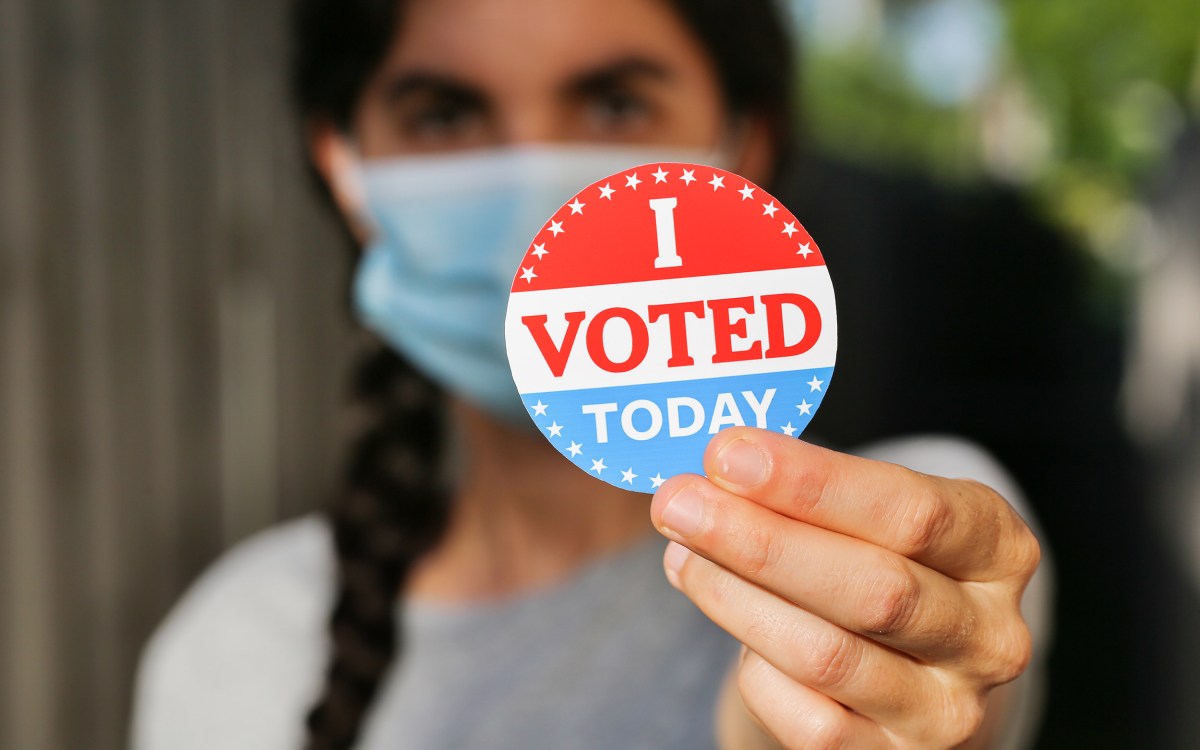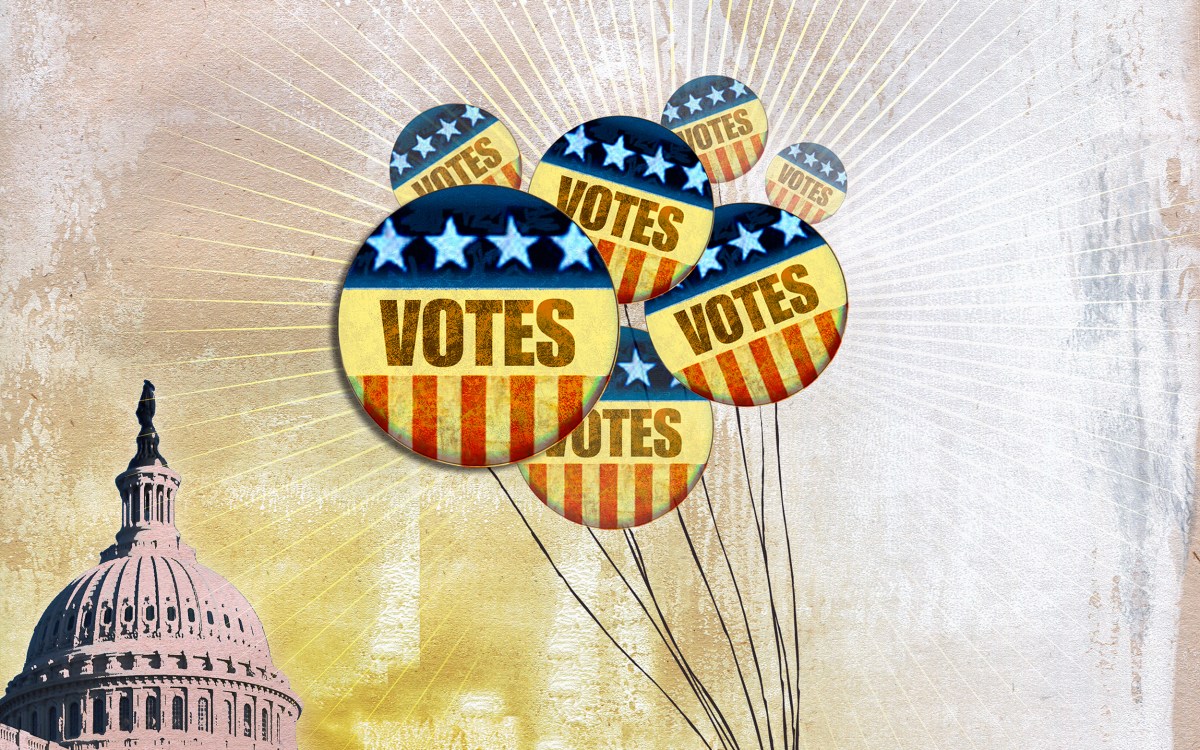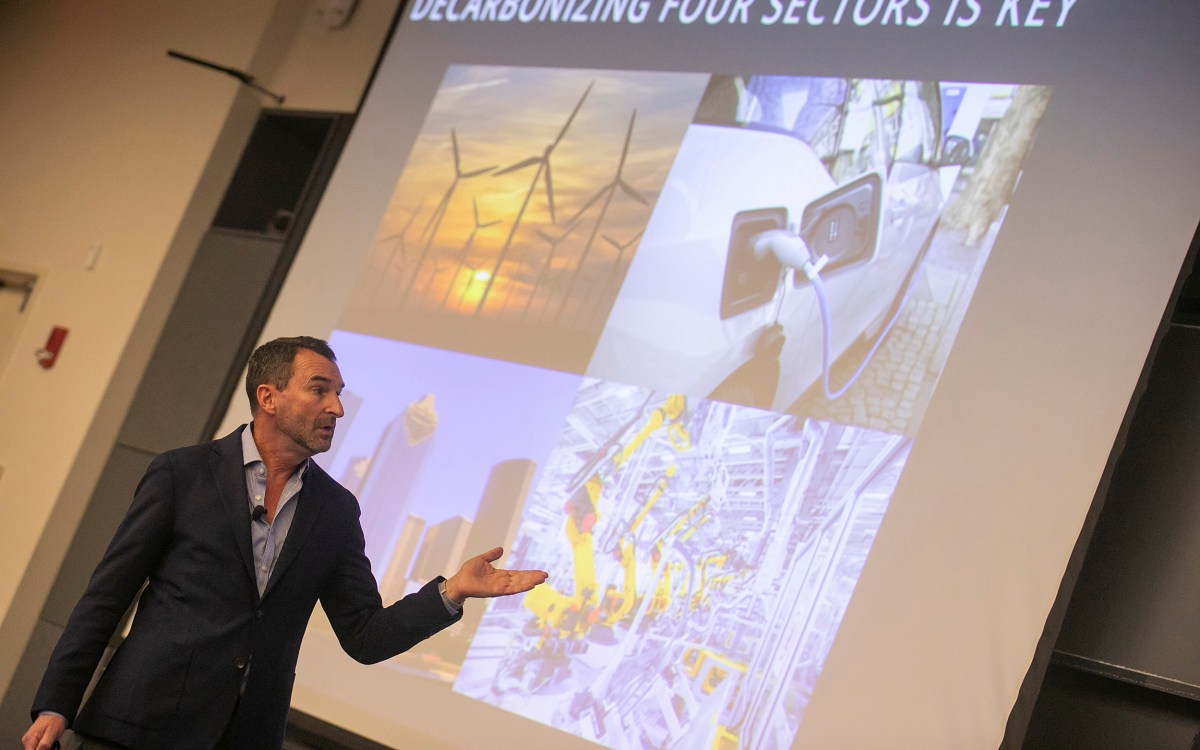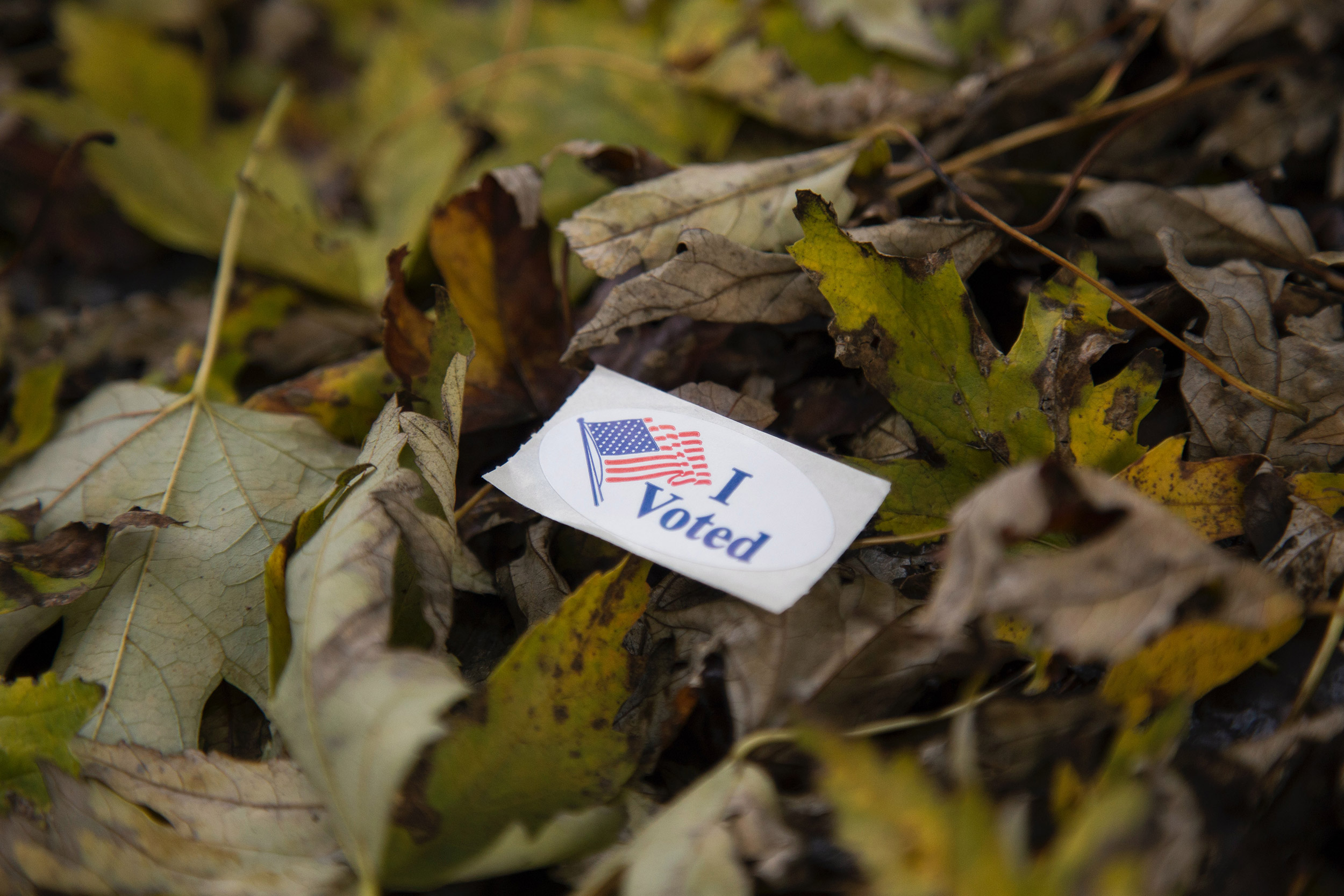
Josh Carter/Unsplash
How do you get environmentalists to actually vote?
Turns out guilt, peer-group pressure work pretty well, nonprofit founder says
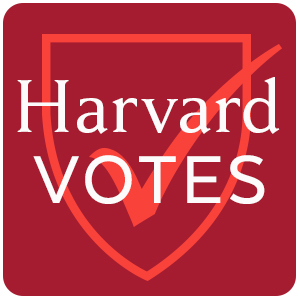
Enough Americans say they prioritize the environment to have a monumental effect on policy. The problem is they just don’t vote. Tackling that challenge — from identifying to motivating environmental voters — was the focus of “Mobilizing the Environmental Vote: Report from the Front Lines,” an online discussion with Nathaniel Stinnett, founder and executive director of the Environmental Voter Project.
Moderator Sanjay Seth, M.P.A./M.U.P. ’19, co-president of Harvard Alumni for Climate and the Environment, introduced Stinnett, who opened with some eye-popping facts. The number of registered voters who say climate and the environment is their top priority is rising (from 2 percent in 2016 to 7 percent in 2018). They are, however, failing spectacularly at making themselves heard at the polls. Stinnett said that 10 million registered voters who named the environment as their top priority did not vote in the 2016 election.
“Environmentalists are awful voters,” said Stinnett during Wednesday’s discussion, which was sponsored by the Ash Center, Institute of Politics, Harvard Alumni for Climate and the Environment, and the Office for Sustainability.
While the reasons to vote should be obvious, the cost of failing to do so may be less clear. To illustrate, Stinnett drew a comparison between environmental voters and those who support the NRA, noting that gun rights advocates have political clout, while environmentalists don’t. “There are four times as many of us as there are NRA members,” he said. “But we just don’t vote.”
That inactivity, Stinnett explained, is why he founded the Environmental Voter Project five years ago. To further political action, he realized, he didn’t need to convince voters to become environmentalists. He simply had to convince those who already cared to vote. “The low-hanging fruit is not trying to change minds. We just need their behavior changed,” he said.
To achieve this, Stinnett outlined the project’s three-step plan: identifying voters, mobilizing them, and then reinforcing the habit to turn them into “super voters,” who can be relied upon to turn out for every election, including those for local and state positions.
“There are four times as many of us [environmental voters] as there are NRA members. But we just don’t vote.”
Nathaniel Stinnett, executive director of the Environmental Voter Project
The methods used to identify voters have grown increasingly sophisticated in recent years, he explained, thanks to data analytics and predictive modeling techniques adopted from the social sciences.
“It’s useful to go back to how campaigns used to target voters,” he said. Using public voter files — which record whether you voted, although how you voted remains private — campaigns used to make generalizations. “You’d hear about ‘NASCAR dads’ and ‘soccer moms,’” said Stinnett. However, using enormous but simple polls, campaigns can now crunch data for pinpoint accuracy. Factors such as whether a voter has retained a land line or what car she drives all play a role. “No single data point is ever predictive on its own,” he said. Combined, however, “All of that data allows us to get a really rich picture.”
Once non-voters have been identified, Stinnett said they take an approach that relies more on emotion and interpersonal connection than rational thought.
“Most people … deciding to take a particular action are not acting like rational beings,” he said. “We’re much more societal beings. We look at what our peers are doing, what our families are doing.” He cited beer commercials, which focus more on aspirational imagery than specifics like taste. “The way you get someone is to appeal to who they are and who they want to be.”
Key to turnout, he explained, is leveraging that sense of who we are in the community. Social media and one-on-one conversations have impact. Getting people to promise or share their plan to vote works too.
“One of the strongest societal norms we have is that most people want to be thought of as honest,” he explained. “If you’ve never voted, and I get you on Oct. 14 to sign a promise to vote, I have successfully trapped you,” he said. “That’s like a bear trap on your leg. Instead of me convincing you that your one vote matters, it’s now a question of whether you’re a trustworthy person or not.”
“… it’s not that your vote doesn’t matter, it’s that your vote is the only thing that matters. It’s so crucially important to be a voter.”
Nathaniel Stinnett
Sometimes, he added, simply letting people know that whether they voted is a matter of public record does the trick. “Pure juvenile peer pressure sends turnout through the roof,” he said.
Currently, the campaign is targeting 2 million environmentalists in 12 states who have registered but never voted. Although Stinnett warns that there are many factors influencing these numbers and that they are not predictive, these new voters appear to be turning out. Already, 73,423 of these self-identified environmental voters have voted early, he said. In Pennsylvania, where 4.7 percent of all registered voters have already cast ballots, 10 percent of Stinnett’s target group have. In Florida, 11.9 percent of those registered have, compared to 19.4 percent of the target group, and in North Carolina, where 6.8 percent have voted, 15.2 percent of environmentalists have.
These results are not only encouraging, they are self-sustaining, he says. Many first-time voters are pleasantly surprised to discover how easy the process is. Also, once registered voters are viewed — through their public records — as likely voters, other political campaigns focus on them. “Once we get someone to vote, then everybody else starts piling in on them, making sure they vote,” said Stinnett. Best of all, he noted, “politicians start responding to the issues that they care about.”
“In a very deep sense, most Americans are cynical about politics,” said Stinnett. His goal, he says, is to “take your cynicism one step further: it’s not that your vote doesn’t matter, it’s that your vote is the only thing that matters. It’s so crucially important to be a voter,” he concluded.
“Remember,” Seth summed up Stinnett’s message, “real environmentalists vote.”



